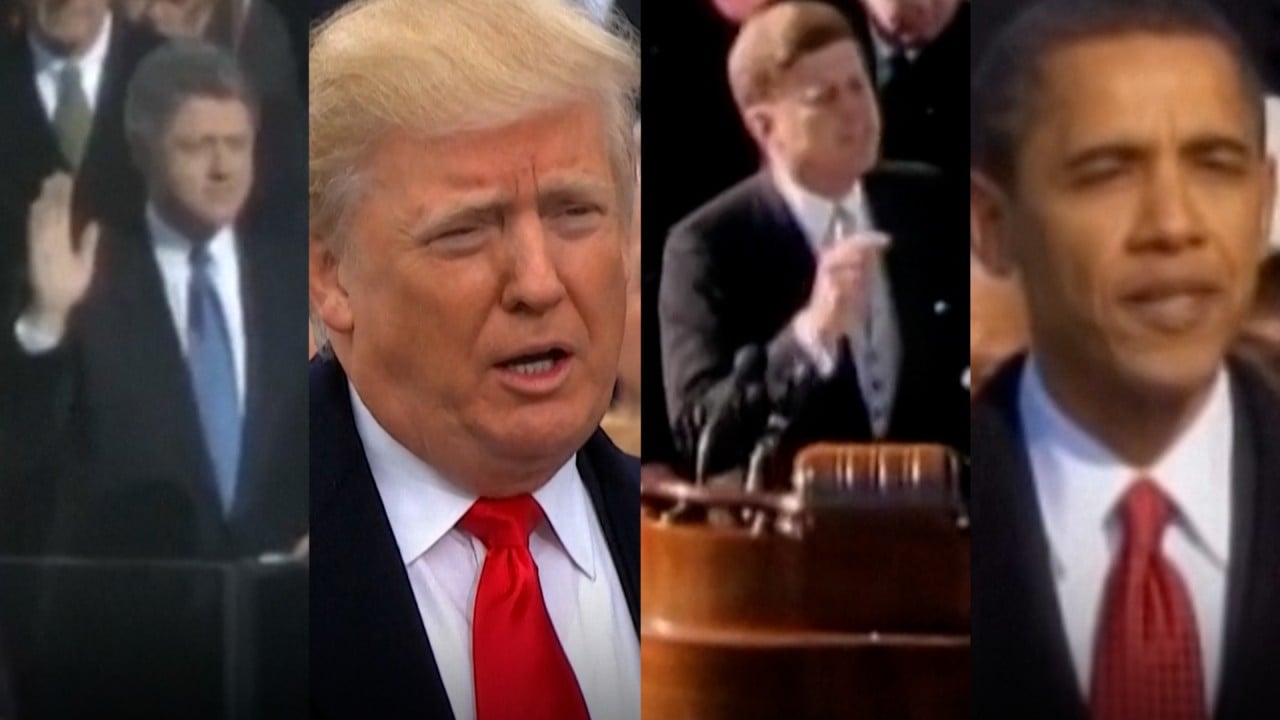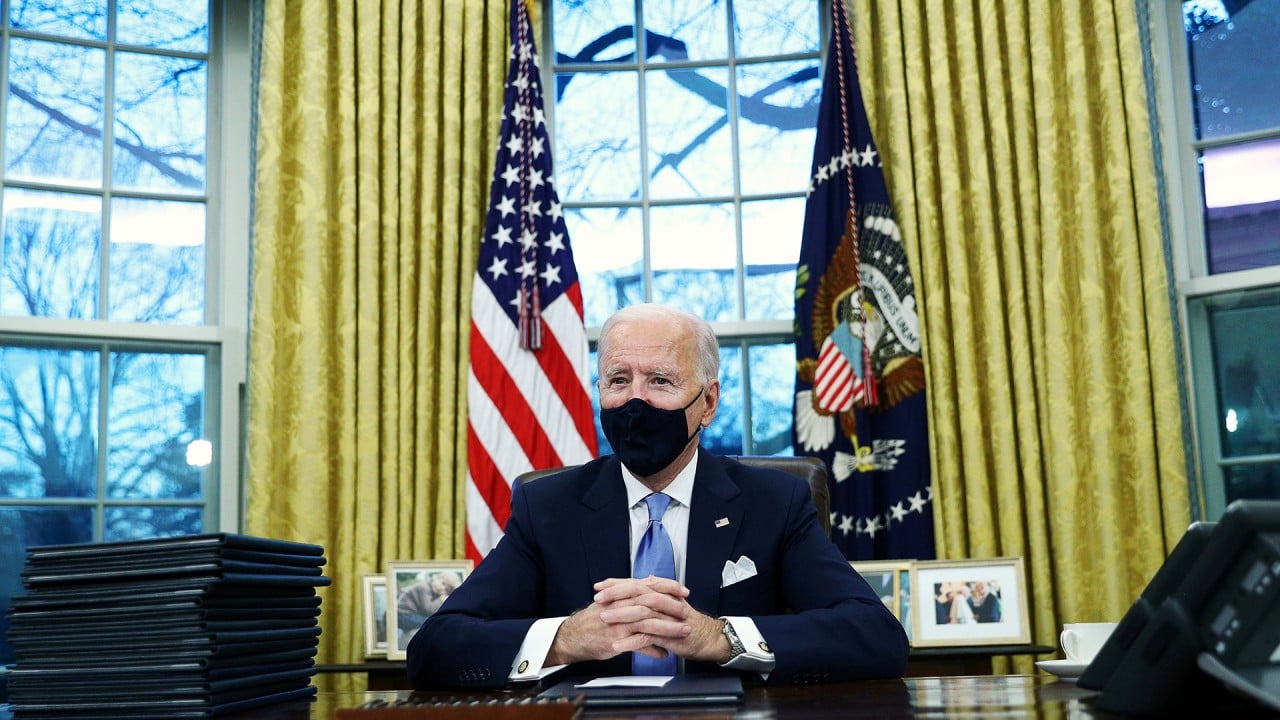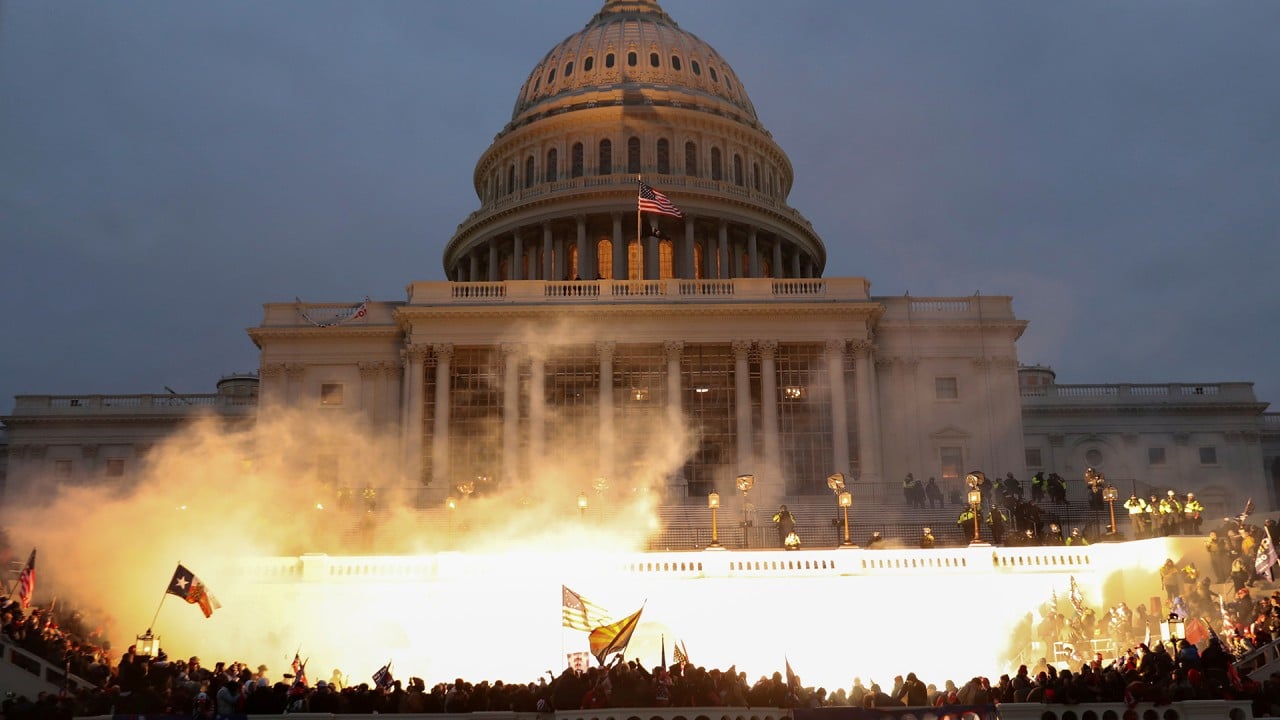
Why Joe Biden, man of contradictions, is just the president to unite a divided United States
- What separates Biden from his predecessors are the intricacies of his character and career, which make him uniquely qualified to handle these extraordinary times defined by calls for unity and justice, healing and retribution, a return to normalcy and radical change
Ever since I arrived in the United States in 1949, I have closely watched presidential inaugurations. At first it was merely out of curiosity as an outsider; I always intended to return to China. I ultimately stayed in the US and spent nearly 50 years in Washington teaching at Georgetown University and working at the State Department and Library of Congress.
I watched both of Eisenhower’s inaugurations, as well as that of John F. Kennedy, who I once lived across the street from in Georgetown. Decades later, I had the privilege of watching the inauguration of one of my former students, Bill Clinton.
The nation’s second president, John Adams, failed to win re-election and left town early in the morning to avoid attending his successor Thomas Jefferson’s inauguration.

04:58
US presidential inaugurations throughout history: a look back as Joe Biden is set to take his oath
More recently, Barack Obama was sworn in for his first term in 2009 despite serious concerns about a potential terrorist threat. The threat, while it proved unfounded, was deemed so serious that Obama’s team prepared remarks for him to deliver in the event he had to orchestrate an evacuation of the inauguration. Obama kept the remarks in his coat pocket throughout the ceremony.
What truly separates Biden’s inauguration – and his presidency – from the rest are the intricacies of his character and career. He is a study in contradictions. He is well-known for being both cantankerous and amiable. Throughout my career in the Library of Congress, I have found him to be more of the former than the latter.
What Joe Biden’s urgent policy priorities mean for Asia
Many recent profiles of the president-elect have struggled to reconcile his stark ambition and capacity for empathy – a “frankly odd combination of personality traits”, wrote Marc Fisher for The Washington Post.

04:33
As Biden enters White House, world leaders express ‘relief’ and welcome ‘friend’ and ‘mate’ back
His personal tragedies, including the deaths of his wife and daughter, and later the loss of his son Beau to cancer, have left him with a particular sensitivity and genuine ability to sympathise with others who have suffered losses.
Biden, with all his contradictions, may be uniquely qualified to handle these extraordinary times defined by calls for unity and justice, healing and retribution, a return to normalcy and radical change.
Biden’s Asia policy will be controversial – and that’s a good thing
In his inaugural address, he vowed to “press forward with speed and urgency, for we have much to do in this winter of peril and significant possibilities, much to repair, much to restore, much to heal, much to build, and much to gain”.
He insisted unity was essential to addressing the imposing challenges the US faced, while acknowledging that the very concept of unity was dismissed by some as a “foolish fantasy” in the current, bitterly divided political climate.
“Our history has been a constant struggle between the American ideal that we’re all created equal and the harsh, ugly reality that racism, nativism, fear, demonisation have long torn us apart. The battle is perennial and victory is never assured.” Yet he insisted unity was still the only path forward, and the only path on which America had never been defeated.

03:15
World shocked by assault on the US Capitol by radical pro-Trump supporters in Washington
In the following weeks and months, it will become clearer, as Biden pursues his agenda focused on combating the coronavirus pandemic and economic downturn at home and recommitting to multilateralism abroad.
Chi Wang, a former head of the Chinese section of the US Library of Congress, is president of the US-China Policy Foundation

